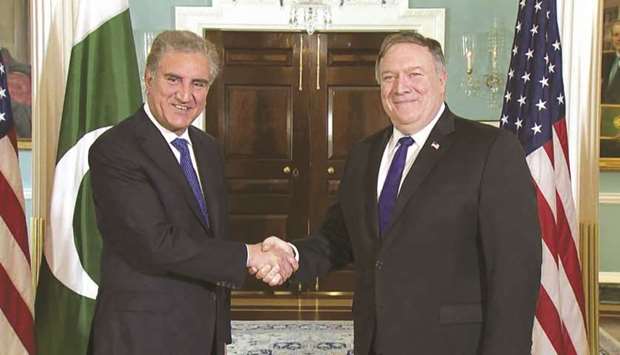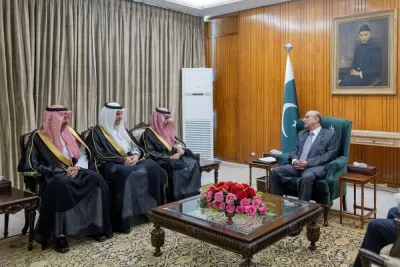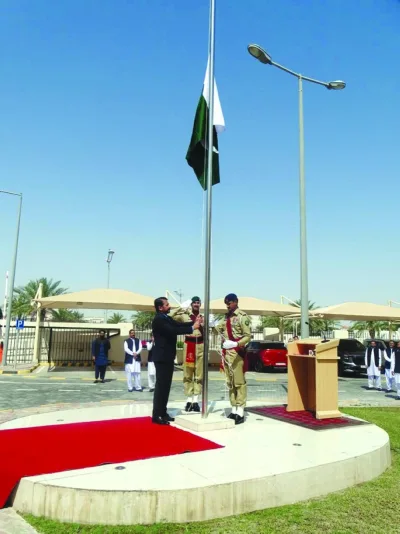In a world spinning with rapid change and throwing up newer challenges every so often, it is deceptively easy to waltz into a ring of fire for a short term gain than sustain the hard yards of a policy with no immediate rewards. Consider the recent maelstrom that resulted from livewire tensions between the United States and Iran, which pitchforked countries on either side of the divide, with their respective alliances, with nary a palatable choice. Pakistan was no different in being put to the test.
However, in contrast to many other countries, which had little choice but to follow a narrower script in self-interest, Pakistan rose above those considerations and indulgently, pitched its tent for peace on all sides by proactively reaching out to them to save the day. Foreign Minister Shah Mehmood Qureshi scurried to Iran, Saudi Arabia and the US in a matter of a week to offer Islamabad’s unstinted support to nix the war drums.
What enabled Qureshi to carry the message with resonance lies in Pakistan’s standing as perhaps, the only Muslim country in the world which can talk to another Muslim country with a meaningful ability to play the peacemaker. Nevertheless, it has been far from an easy ride for Islamabad given the multifarious economic issues it is currently seized with which have a direct bearing on both domestic stability and foreign policy.
Indeed, one of the outstanding challenges the Imran Khan-led government in Islamabad has faced since it came into power late summer in 2018 has been to strike a balance at virtually every turn. It is still an ongoing work — to set the house in order and pull back from the detrimental past policies of pretty much keeping all the eggs in one basket, so-to-speak.
The foreign commentariat often betrays complacency in merely seeing it all from the prism of a relationship with one particular state or two, or the rush to judgement as evident in the recent episode where Islamabad reluctantly pulled out of a summit in Kuala Lumpur. The optics may not have been ideal but the fact is that such decisions were — and are — driven by the country’s core national interests, and the long-term future of Islamic unity.
It is a measure of considerable satisfaction for Pakistan that both Turkey and Malaysia accepted the unity of purpose behind the decision and Prime Minister Imran Khan continues to enjoy close ties with leaders of both the countries with whom he had a frank discussion over the pullout. In fact, Khan is scheduled to visit Malaysia next month —for a second time only 17 months into power — to reinforce ties that also have a personal imprint of a close bond between him and Prime Minister Mahathir bin Mohamad.
Meanwhile, Islamabad’s studied attempt to expand the horizons of its foreign policy goals is a reflection of its understanding of engagement in a multipolar world. To his credit, the PM has admitted mistakes in the past that drove Pakistan to side with a superpower in the so-called war-on-terror with colossal damage to the country in terms of men and material losses that no other country has endured in a post-9/11 world.
“Pakistan will not become a part of any war,” he said while inaugurating a skills development programme in Islamabad earlier this month. “Nobody emerges victorious from wars. Even the winner is a loser. Pakistan had paid a high price in the past by becoming a part in the war-on-terror,” he recalled, adding: “Now, Pakistan will not fight wars, but will bring countries together.”
Underpinning this paradigm shift was an engaging interaction on Defining National Security at ThinkFest 2020 in Lahore recently, where Moeed Yousuf, Special Assistant to the Prime Minister on National Security Division and Strategic Policy Planning, disclosed that Pakistan would have a coherent national security policy by year-end with an inclusive economic diplomacy, ensuring security in all respects.
Yousuf, who is known for his depth of field in IR and diplomacy, and has served as Director of South Asia programs at the US Institute of Peace, taught at Boston University’s Political Science Department, delivered lectures at the US State Department’s Foreign Service Institute and Nato’s Centre of Excellence Defence against terrorism in Turkey as well as the Pakistan Military Staff College, is author of a handful of significantly researched books, consultant, and now a regular presence by the side of the PM in his foreign forays, asserted that Islamabad will soon ply by a robust security policy strategised to meet the challenges of the 21st century.
Said Yusuf: “We are developing a coherent National Security Policy, which integrates foreign policy, internal security, education, population, global warming, culture and tourism, with a sole aim to ensure the social and economic security of the common man. We are breaking away from the traditional definition of single-track geo-economic policy and now integrating all sectors to work in tandem to achieve the goal of uplifting the common man.”
The PM’s Special Assistant underlined that including education in the overall national security policy did not mean deploying guards outside schools. “It would mean securing society by educating people and giving them jobs. The economic diplomacy is the basic element of the government’s planned inclusive foreign policy,” he pointed out.
Countering the argument about the apparent futility of talking peace, Yousuf said: “Pakistan knows mediation will not bear fruit in this situation (resulting from US-Iran tensions), but it’s time to engage in diplomacy to prevent escalation,” he said, citing that the media had incorrectly criticised it as a mediation effort. “We are not doing it for optics, but in the national interest,” he emphasised.
“Had we been doing it for optics, we would not have engaged Taliban, as the international media was unkind to Pakistan for being allied with them (Taliban),” Yousuf recalled, adding that if Islamabad can use its avenues to bring peace in the region, then optics didn’t matter.
“(The new security policy) is a paradigm shift. It’s not going to happen overnight, but finally, it will be out (by the end of 2020). For 70 years, we have been functioning under short-term strategies,” he observed.
The PM’s Special Assistant also had one last interesting, if philosophical, pitch to make about the job at hand. “Our job at the National Security Division is not to tell what will happen tomorrow, but what will happen day after tomorrow.”
The writer is Features Editor. He tweets @kaamyabi

PEACE DRIVE: Foreign Minister Shah Mehmood Qureshi, left, with US Secretary of State Mike Pompeo in Washington DC last week as part of Islamabad’s peace initiative.


